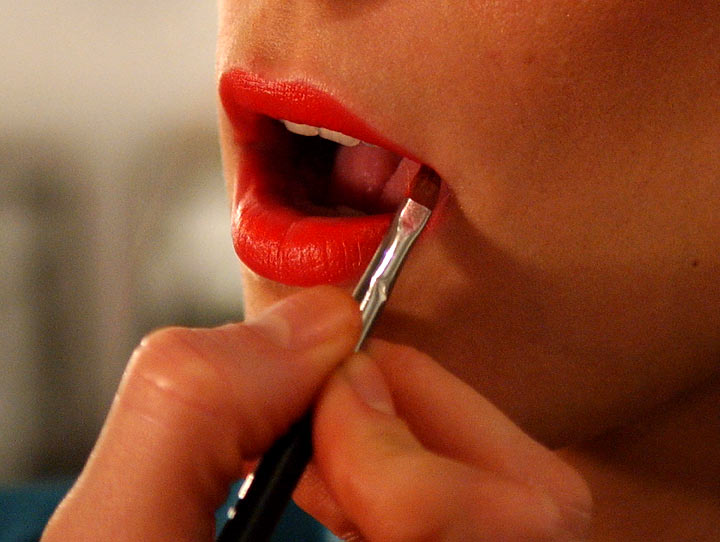TORONTO – If you’re concerned about the ingredients in everyday health and beauty products, navigating the beauty counter might feel like walking through a minefield.

From five-syllable ingredients nearly impossible to decipher, to products labelled “natural” when they’re anything but, the average consumer likely has no idea what is in their personal care products.
READ MORE: Herbal products contain fillers, contaminants, omit ingredients on labels
So a group of Toronto developers created a free app they hope will empower consumers to make more informed choices at the drugstore checkout.
The Think Dirty mobile app allows consumers to scan the bar codes of their favourite personal care products to learn more about what’s in them and potential health impacts of those ingredients.
Think Dirty project
The inspiration for the Think Dirty project began with one woman’s recovery from breast cancer.
Ten years ago, Lily Tse started researching potential causes of breast cancer after her mother’s breast cancer relapse.
She hadn’t considered the health and environmental impacts of her cosmetics and personal care products until watching Annie Leonard’s short film The Story of Cosmetics.
The seven-minute film examined the ingredients of everyday products and the impact some of these ingredients have on human health.
Tse said that finding safe product alternatives wasn’t easy.
Cosmetic and personal care product labels can be confusing. Often products containing the word “natural” are no different in chemical composition than their synthetic counterparts, according to the Canadian government.
Visit any typical drugstore or beauty counter and examples of confusing product labels abound.
Take Organic Root Stimulator Olive Oil Nourishing Sheen Spray as one of many examples. It’s not actually organic.
“Organic Root Stimulator” is the trademarked brand name, and according to the Think Dirty app, the product scores a 10 on the app’s “Dirty Meter” as it contains ingredients the team says have “serious long term health impacts.” Parafinum liquidum is used as a barrier to lock in moisture in the hair and skin, but the Think Dirty team says it’s also a known human carcinogen with links to breast cancer.
Another product example, Aveeno Active Naturals Living Colour Shampoo, boasts the power of Active Naturals Lupine Botanicals, which smooth hair cuticles.
Fine print on the Aveeno website explains however that “Active Naturals” products contain ingredients that are “sourced from nature” but do not refer to the “medicinal ingredients of the product nor their therapeutic effect.”
The Think Dirty app lists ingredients in the Living Colour Shampoo including dimethicone (a lubricating agent), which is non-biodegradable and an endocrine disruptor with potential long-term health impacts.
(Global News contacted both companies about the terms “organic” and “naturals” in their product names, but did not receive responses.)
READ MORE: Men warned of toxic ingredients in grooming products
The Think Dirty app launched this summer and its database now contains more than 11,000 products from 1,000 brands.
How the app works
Once the app is downloaded on your phone, users can scan product bar codes. If it is included in the Think Dirty database, the app will list the product ingredients as well as a “Dirty Meter” rating that offers additional information on the ingredients and potential health impacts. The app will also suggest “cleaner” options, products that get the job done without all the carcinogens.
If a product isn’t listed in the database, users are encouraged to scan the bar code and submit the product for review to the Think Dirty team.
When it was first launched, the app’s database could be described as sparse, but the small team worked quickly to add more and more products and alternative product suggestions.
Why should I trust the app’s rating system?
It’s a question Think Dirty team members have received, and one they welcome.
“It’s a great question. Our answer to you would be then don’t trust the beauty counter advisor neither.”
The team said they encourage all consumers to be informed of the ingredients in their personal care products and then make their own judgement.
The sources the team references when examining products include Health Canada, the US Food and Drug Administration, Environment Canada and the National Library of Medicine PubMed Studies. (You can see the full list here)
The point of the app, they argue, is to make it easy for consumers to make informed choices based on the ingredients they contain.
“The reality is that there are clean products sold by conventional brands and dirty products sold by ‘natural’ brands. The beauty of our app is we just look at the ingredients, and nothing else.”
Some argue that certain ingredients are harmless when exposed to low doses, but the Think Dirty team said ingredients such as BHA and BHT, petrochemicals, parabens and sulfates should never be included in the products consumers use, “no matter how much or how little.”
30 days of dirty campaign
For the month of October, Breast Cancer Prevention month, the Think Dirty team partnered with the charity Breast Cancer Fund to raise awareness of breast cancer prevention by avoiding potentially toxic chemicals in personal care products.
During the campaign (which ends Oct. 30), every time users scan a product using the app, Think Dirty Inc. will donate $1 to the Breast Cancer Fund.
So far the campaign has raised $14,000, reaching 70 per cent of its fundraising goal.






Comments